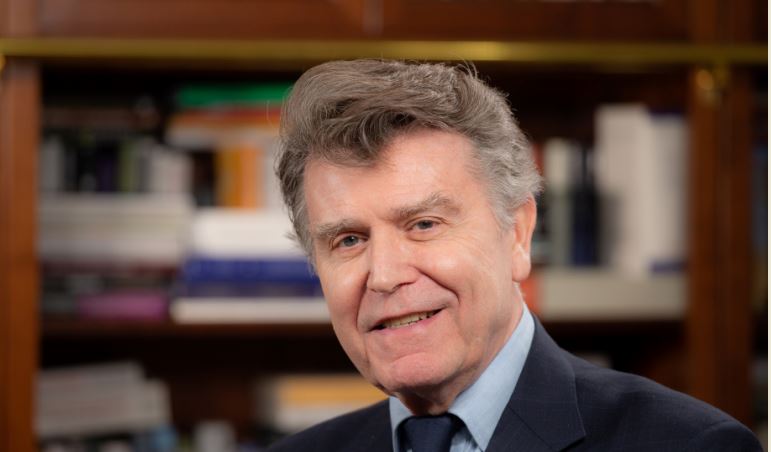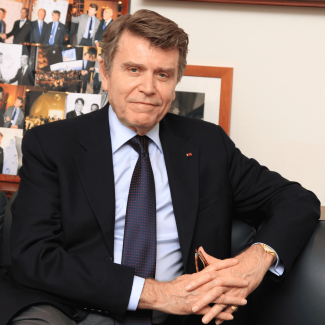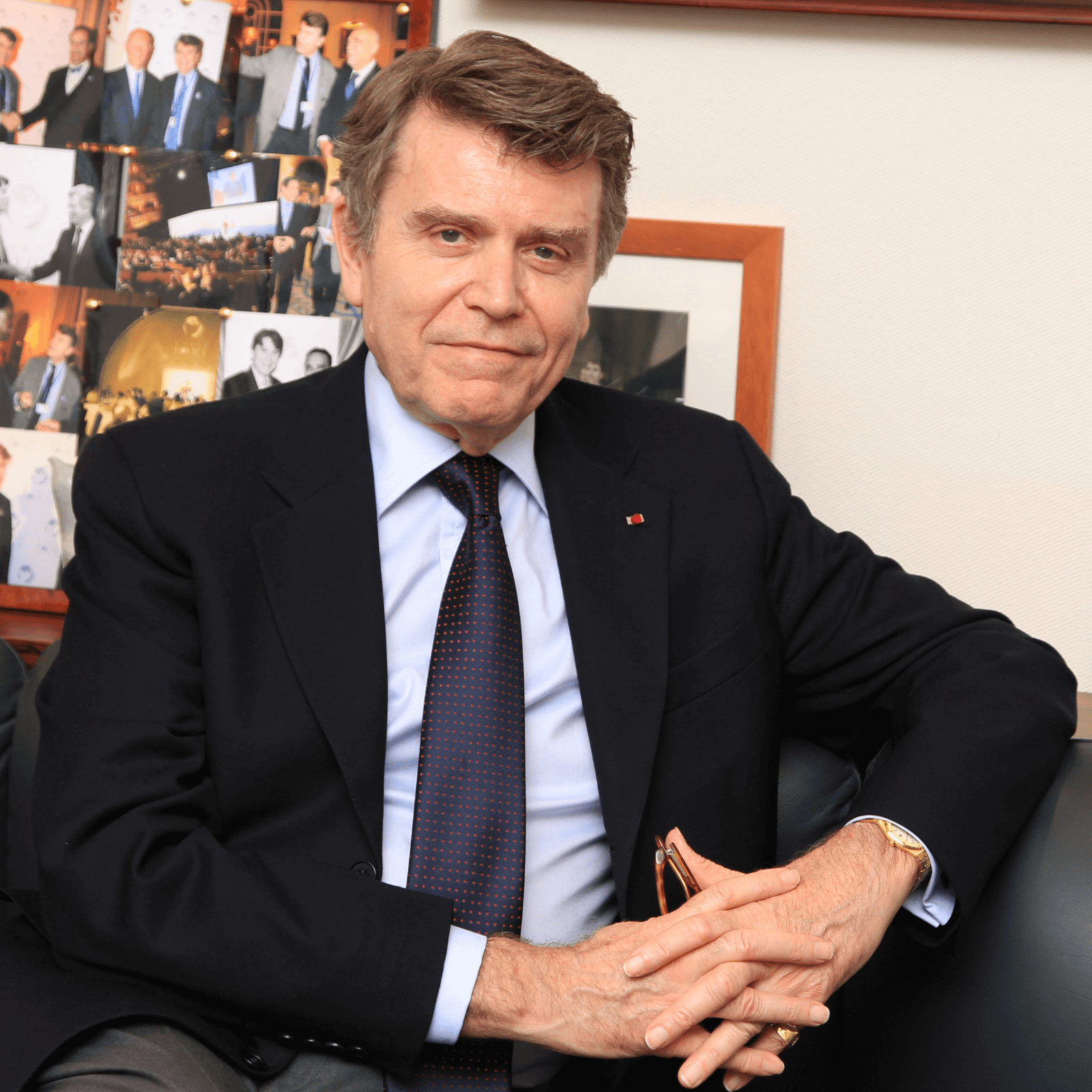Looking back on the last few weeks, a famous quote by Goethe (from his report on the siege of Mainz in 1793) came to mind: “Better to commit an injustice than to countenance disorder.” In other words, disorder engenders more injustice than it eradicates. But, if one word characterizes the world at the end of summer 2020, it is disorder.

The coronavirus pandemic continues to wreak havoc on the planet, as much through an underlying anxiety increased by contradictory statements made every day, as through the objective economic collapse caused by the steps taken to fight it. Democratic States are struggling to find the right balance between sometimes-hypocritical measures to combat the virus and the search for economic recovery in the fog of an uncertainty that is partly self-sustaining due to all kinds of contradictions.
The case of the United States is particularly noteworthy because the pandemic disorder is superimposed on the deeper one of a (not only racial) social fracture that existed before Donald Trump’s election, but which he amplified as if just for fun. The magic of the 45th President of the United States continues to work, however. He manages to pass himself off to half of his fellow citizens as the savior of an America devitalized by the Democrats. His opponent Joe Biden is clearly destabilized by the situation as a whole. Trump’s autocratic counterparts, whom he admires so much, have nothing on his mastery of the art of fake news. The bottom line is that the world's leading power has never seemed more divided since the Civil War. It is more violent than ever, and we do not see spectacular American disorder accompanied by a decrease in injustice. Whatever the outcome of the November 3 election, the United States will not suddenly come together the next day. And a divided America will not become a world leader again. This means that the international system’s disorder is not going away any time soon. Who could believe that it would advance the cause of justice?
Injustice begins with the selective gaze. Human beings are made in such a way that they feel more concerned about the "near" than the "distant". For a few days this summer, the explosion in Beirut caught the attention of everybody in the world still interested in Lebanon, especially in France, for historical and emotional reasons dating back to the 16th century. Unfortunately, Lebanon has been experiencing a more or less latent civil war for almost half a century, with the only common ground between the communities being the plundering of the common good at the expense of any notion of Lebaneseness. As in other countries (I am thinking particularly of Algeria), its youth was rumbling with revolt long before the tragedy on August 4, but in vain. And it is unsure whether the terms potential donors rightly set to pull the country out of the abyss will be implemented. In addition, the Israeli-Palestinian conflict is now on the periphery of Middle East politics as a whole, as illustrated by the spectacular rapprochement between the United Arab Emirates and Israel, another highlight of recent weeks. In the new framework taking shape, revolving around the key interests of Iran, Saudi Arabia, Turkey and, outside the region, the United States, Russia and, increasingly, China, Lebanon no longer matters. In absolute terms, this is deeply unfair. Life is cruel to those who do not take sufficient care of themselves and indulge in disorder at best concealed by a trompe l'oeil décor. Here too, "history-in-the-making" reminds us that justice cannot spontaneously spring from disorder.
What can be said about Belarus? If disorder can only engender injustice, must it be deduced that one must give Alexander Lukashenko, one of those potentates who captured a part of the Soviet legacy, free rein to establish a sort of conservative monarchy increasingly out of step with the march of history? The answer is obviously no, for the fact that disorder engenders injustice does not justify preserving any order. Lukashenko has the same problem as all the regimes that, with time, have no other goal than perpetuating themselves — an illustration of Spinoza’s conatus. But if “one” must not give the Minsk dictator free rein, what must “one” do? The answer can only be political. And first of all, who is this “one”? In contemporary international relations, power still matters more than anything else. At most, it might be tempered by international law as expressed in the framework of the UN. Like it or not, “one” consists first and foremost of the States that are most interested in Belarus (other than for appearance’s sake, as is often the case in politics), starting with Russia. The Kremlin can be expected to back any formula allowing closer ties between Belarus and Russia. In the present international context, I objectively see no major player willing to invest in a Minsk Spring.
The dialectic between justice and order, or injustice and disorder, is an ever-recurring question. The news of the day, whatever it may be, can be relied upon to dissertate about it. Undoubtedly, "summer breaks" lend themselves well to such distancing. I began by quoting Goethe but, closer to us, I often think of Albert Camus, about whom much was said earlier this year on the 60th anniversary of his accidental death. Unlike Jean-Paul Sartre, the author of The Plague clearly made a distinction between revolt and revolution. In the most broadly accepted meaning of the term, revolt is above all an emotional attitude towards injustice. From the perspective of action, it is morally superior when expressed in forms of personal or collective commitment based not on hatred and blind violence – as happens in any revolution – but on ethics, necessarily winning in the long term as long as it is not corrupted. Such commitments are winning propositions because, through perseverance, they always meet their kairos, their propitious moment for success. I imagine Camus as a promoter of a philosophy of history that might be called dynamic equilibrium, like a spiral coiling around an axis of an essentially ethical nature. I do not think I am going too far in interpreting the great writer, for whom the world may have been absurd but not to the point of encouraging absurd policies.
This type of thinking is fundamental today, when, as UN Secretary General Antonio Gutteres says, the spirit of international cooperation is at its lowest ebb. Violence manifests itself between but also within nations, as we see in countries as attached to the democratic ideal as France or the United States. In the face of disorder, democracies are often handicapped compared to authoritarian regimes. By dint of inefficiency, they can sometimes lose their legitimacy. Authoritarian States have immense vulnerabilities, but in certain circumstances such as the present, time can play in their favor.
I will conclude with an upbeat note on the European Union, which is once again demonstrating its ability to move forward - albeit painfully - with every major crisis. It is, on an already very large regional scale, the only living laboratory of international governance worthy of the name, which allows us to hope that in the long term democracy and efficiency will go hand in hand: economic and social efficiency, but also security efficiency, both from an internal and external point of view.
Democracy without authority is a breeding ground for authoritarianism. How can I not finish with Pascal’s famous thought: “Justice without might is helpless; might without justice is tyrannical. Justice without might is gainsaid, because there are always offenders; might without justice is condemned. We must then combine justice and might, and for this end make what is just strong, or what is strong just.” In this regard, global governance still has a long way to go. So does the European Union.
Download the full analysis
This page contains only a summary of our work. If you would like to have access to all the information from our research on the subject, you can download the full version in PDF format.
Justice and Might







